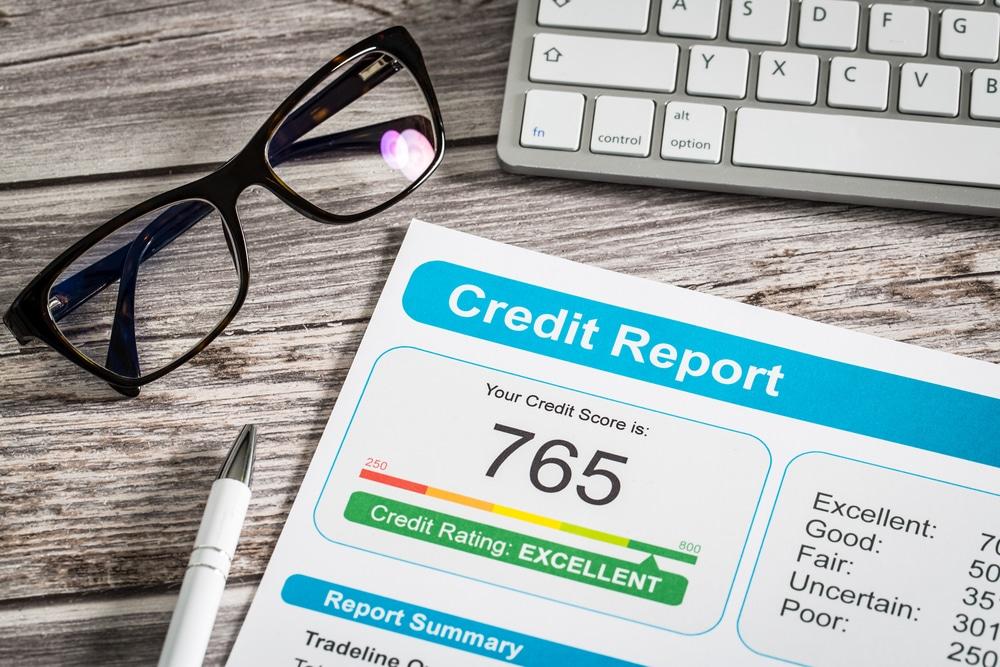A credit score is a three-digit number that describes your creditworthiness based on your credit history and financial behavior. A good credit score can unlock access to loans, mortgages, and job opportunities.
Unfortunately, misconceptions surrounding credit scores can affect your financial decisions. Read below to know the truth behind credit score myths.
Top 7 Credit Score Myths Debunked
Proper knowledge can help you manage your loans and finances. Below are facts behind credit score myths to make financial planning effective.
1. You only have one credit score
This myth is as widespread as it is inaccurate. In reality, many credit score models are available, with the FICO score and VantageScore being the most well-known. In the Philippines, the Credit Information Corporation (CIC) calculates credit scores in collaboration with three credit bureaus and accessing entities: Credit Information Bureau, Inc. (CIBI), TransUnion Philippines, and CRIF Philippines.
Each model considers various factors, including payment history, credit utilization, length of credit history, types of credit in use, and new credit. Because of these multiple considerations, your credit score may vary slightly from one institution to another.
Since different lenders use varying models, monitoring how they score your credit status can give you a comprehensive view of your finances. Then, you can address specific areas for improvement while tailoring your financial behavior to match the criteria of your creditors.
2. Closing credit accounts can improve your credit score
Contrary to popular belief, closing credit accounts doesn’t necessarily boost your credit score. In fact, it can have the opposite effect.
Your credit score considers the length of your credit history and your total credit available. Since closing an account may shorten your credit history and reduce the available limit, your credit utilization ratio (CUR)—a measurement of how much credit you use from what’s available in your account—may not work favorably.
A lower ratio is generally favorable for your credit score; closing an account may inadvertently increase it. Instead of closing accounts, focus on responsible credit management by maintaining a healthy balance between credit usage and limit. If you do decide to close an account, consider the potential impact on your credit score first and do so strategically.

3. You can’t fix bad credit
The idea that bad credit is a permanent stain on your record can be disheartening. Luckily, it’s a myth. You only need to put in time and effort before improving your bad credit score.
Start by identifying the factors affecting your creditworthiness negatively. Late payments, defaults, and collections can all contribute to a poor credit score. So, address these issues systematically.
For example, a consistent record of always paying on time can significantly impact your credit score. Reducing outstanding credit card and other loan balances can also help improve your CUR. Then, check your credit reports and dispute discrepancies, inaccuracies, or errors that may pull down your score.
By adopting responsible financial habits, you can gradually rebuild your credit. Consistent and positive behavior will gradually outweigh the negative impact of past financial missteps and reduce the likelihood of loan rejection.
4. The balance in your bank account affects your credit score
Always remember: your credit score reflects your credit behavior, not the balance in your bank. A common misconception is that having a large sum of money in your bank account boosts your credit score. However, that is not the case.
While a healthy bank balance benefits your financial well-being, it doesn’t directly impact your credit score. As mentioned, factors like payment history, credit utilization, and the length of your history carry considerable weight in determining your credit score. It’s best to focus on these considerations to ensure a healthy credit score.
5. You need to pay to check your credit score
The credit score myth of paying for record access is outdated and harmful, especially since it can discourage you from checking your credit score. Luckily, many reputable platforms offer free credit score monitoring. Knowledge is power, and in this case, it’s freely accessible. So, take advantage of these services to stay informed about your credit health.
Regularly checking your credit report helps you detect errors, spot potential fraud, and track your progress in building good credit. Some services may offer additional features at a cost. But, obtaining your credit score should not come with a price tag. Just make sure you stay cautious of scams that try to charge you for basic credit score information.
6. Delinquent credit card balances won’t affect your score once paid
Yes, paying off delinquent credit card balances is a positive step. However, it doesn’t automatically increase your credit score since records of late payments and delinquencies can stay on your credit report for up to seven years.
But don’t worry! The impact of delinquent payments lessens over time, especially if you demonstrate positive credit behavior continuously. Understand that settling delinquent accounts is beneficial, but it may take time and consistency for your credit score to recover fully.
7. Getting a credit card can ruin your credit score
This credit card myth is just the opposite. Obtaining a credit card can have positive effects in the long run, especially if you practice responsible credit card use.
Timely payments and maintaining a low credit utilization ratio are excellent ways to demonstrate financial responsibility and boost your credit score over time. Having a mix of credit types, including credit cards, can also improve your standing while showing lenders that you can manage those accounts responsibly.

Credit Score FAQs
1. What’s a good credit score?
Typically, a good credit score ranges from 670 to 739. However, higher scores of 740 and above are considered excellent and offer better loan terms.
2. How can you increase your credit score quickly?
To boost your credit score fast, pay bills on time and reduce credit card balances. Also, address any errors on your credit report to ensure they don’t damage your score without you knowing.
3. How quickly can your credit score change?
Your credit score can change monthly, reflecting your recent financial behavior. But note that significant improvements may take a few months to show, while unfavorable changes can occur more rapidly.
The Truth Behind Credit Score Myths
Knowing the truth about credit score myths empowers you to make informed financial decisions for better money management. Don’t let misconceptions guide your actions. Instead, leverage your knowledge to build and maintain a healthy credit profile. Remember, your credit score reflects your financial discipline; informed choices today contribute to better finances tomorrow.
If you need help regarding loans with favorable terms, contact Asialink Finance Corporation. We offer finance loan in the Philippines with low interest rates to support your financial needs and goals.
Apply for a loan today on our website. You may also check out our blog for tips and other loan information.






